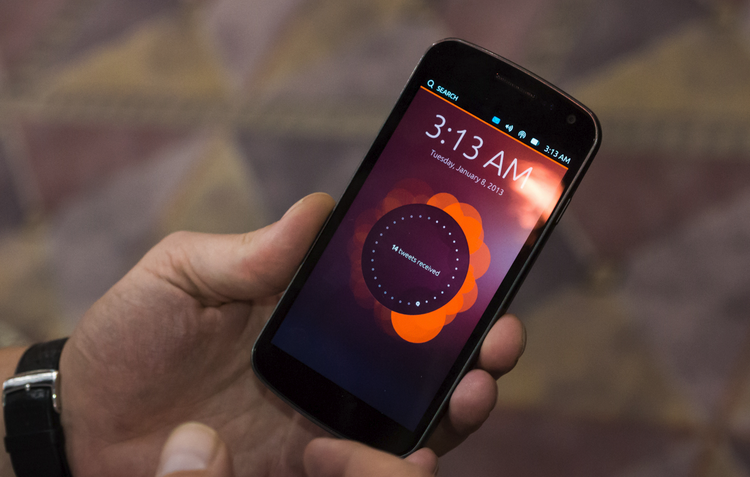
When you hear the word 'Ubuntu', it's more than likely not the first time you've ever heard of the word. Although not very well known in the smartphone industry, the word is often associated in a close cousin of the smartphone: the PC. Ubuntu, as of right now, is the most popular desktop Linux distribution. As for their role in the smartphone industry? It's pretty mum right now, but anybody in the computer industry can see the potential for success on the smartphone side of things as well if they can create a good enough product. Canonical, the company behind Ubuntu, has been working on this potential and seems to ready to move forward with making it happen.
Ubuntu has been at work with their own smartphone platform since at least the beginning of 2013. The year proved to hold many ups and downs for the company as it went from big hype at the start of the year to nearly completely ignored by the end of the year. Without meeting their crowdfunding goal, which required at least $32 million, Ubuntu was inevitably set back as Plan A (creating their own hardware for their own software, similar to Apple) was no longer an option in their eyes. Now it was time to move on to Plan B, which looks like it is to go the Android route and to host their operating system on hardware made by other companies. As of right now, only two are confirmed to be working on hardware for Ubuntu smartphones: Spanish manufacturer bq and Chinese manufacturer Meizu.
It might seem like this would be of no interest to you and that Ubuntu will just be another smartphone platform that won't be targeting the U.S.; however, while bq might not make any debuts here, Meizu has already announced that they will be making phones for the U.S. this year, and I imagine that if they're supporting Ubuntu, at least one of the smartphones they release here will be running on it.
The question now is: Is there any room for Ubuntu to make headway through today's market?
It's not that I find the smartphone market entirely oversaturated with operating systems or anything; really, there aren't that many. I think the biggest problem surrounds the fact that the smartphone market has already been taken by storm with Android and iOS, both of which were two of the earlier companies to get in on the game. Windows Phone, on the other hand, entered later and is still struggling to get a larger piece of the pie (yet, still making progress none-the-less). In that same sentiment, you could also look at BlackBerry as the poster child of what it means to be the first one in as well as the first one out - the company is rockier than a Sylvester Stallone movie right now, and they were in the mobile business long before either iOS or Android ever was. It just so happened that Apple and Google were able to "innovate", if you will, in ways that BlackBerry took a little too long to get around to.
And I guess that's probably the answer we're looking at in regards to where Ubuntu is headed from a prospective standpoint. If Ubuntu for phones can provide something that everybody else can't, and something that makes people want to switch platforms, than it is entirely possible for the operating system to gain some traction even in today's smartphone market. At the very least, it does need to have a decent app store. People might tell you that apps don't matter in the end, but the more you think about it, they really do. Even if some people don't care more about apps rather than interface and features, the majority of consumers are only getting into smartphones because of apps - so it's important to keep them happy with the selection.
I can't say I'm not interested in what the phones will have to offer. Given that they've allegedly put their focus on mid to high-end smartphones (which is right up mine - and a lot of our readers' - alley) as well as pairing up with Meizu (which I've already expressed interest in), I have to admit that I will be once again keeping my eye around for Ubuntu this year. Last year I pretty much lost sight of them after so long of not seeing anything really come to fruition with the exception of Ubuntu Touch, a software that Nexus 4 and Galaxy Nexus owners could install and have limited use of on their phones if they chose to. Although I tested Ubuntu Touch on my spare Galaxy Nexus, I knew after some limited use that I wanted to see more before I was entirely convinced. Although it never happened last year, I have hopes that maybe this year we can see what Canonical really has in store for people.
What are your thoughts regarding Ubuntu for phones? Do you think the new platform has a fighting chance against already established mobile operating systems, or do you think its bound to flop because it's too late to the game? Let me know what you think in the comments below!
Images via Gizmo Report, Geek